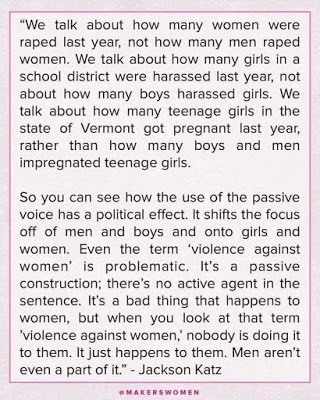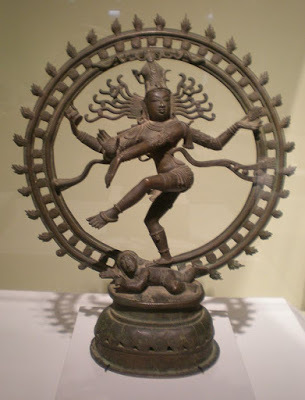Stephen Roney's Blog, page 251
March 10, 2020
The Harrowing of Nations
It looks as though my former thesis, that the COVID-19 virus might be God’s plan to overturn some immoral social orders, is not tenable.
As I said at the time, if the virus spread much further than China, Iran, and the EU, it must not be the case.
On the other hand, the virus as it spreads does seem to be a test of the various societies, in more or less the way a war is. How well can they deal with the threat? Those who do not handle it well perhaps will die, and perhaps deserve to die.
China seems responsible for the original problem. Yet we must now balance this with the fact that they seem to have gotten a handle on it. New infections have fallen sharply. The overall rate of infection is actually now higher, if figures are correct, in South Korea.
But South Korea, too, now seems to be getting a handle on it. New cases are down; and the death rate is surprisingly low. Lower than China; lower than anywhere.
Singapore, Vietnam, Hong Kong, Taiwan, and Japan also seem to be weathering it fairly well.
By contrast, reports out of Iran and Italy are alarming: high death rates, hospitals overwhelmed, no apparent containment, signs of general panic, an apparent lack of information from governments.
Perhaps we are seeing the harrowing of nations. It is not so much central government control versus individual freedom, either; China exercises tight control, but South Korea, Taiwan, or Japan do not. The government of Hong Kong traditionally does not, is extremely free-market, and currently cannot. Iran exerts tight control; Italy does not.
It looks more like East Asian social values being contrasted European and Iranian decadence.
We shall see how it goes from here as the virus becomes equally widespread elsewhere. But early signs from the US look shambolic, like Iran and Italy. Early signs from the rest of Europe, other than Italy, also are not good.
Perhaps we are seeing the future. East Asia is ascendant, and “Western civilization” is burnt toast.
'Od's Blog: Catholic and Clear Grit comments on the passing parade.
Published on March 10, 2020 12:04
Violence against Language

I tend to hobnob with other editors on Facebook, and this meme has come around more than once.
This Orwellian attempt to politicize language always alarms me. Especially among editors, who are in a position to impose censorship on what we get to read, just like Winston Smith in the Ministry of Truth.
The use of the passive in this case looks perfectly legitimate. It is entirely likely that the reporter has been given a number for how many women were raped, or how many girls were harassed, and no number for how many men raped or how many boys harassed. It is obviously not the same number. More obviously, it is easy to have a number for how many women are pregnant. It is essentially impossible to know how many fathers are involved.
And there is essentially the same problem for rape or harassment. How do you arrive at a number for how many men rape? You could, if you simply went with the number of convictions for rape, and the number of charges cited in each. Very few men rape. But I wager that is not where the original number came from. It probably came from some feminist source, who wanted to float far higher numbers than this would produce. It probably came from women self-reporting. The figures for boys harassing girls almost certainly did.
So, to get the figures for perpetrators, you could do the same, right? Do a thorough survey, and ask men how many have raped some woman, and boys how many have harassed girls, in the past year?
Does anyone think that number would be accurate? Does anyone thing the two sets of figures would be comparable?
But then, logically, going by self-reporting for women and girls is no more likely to be accurate. We cannot assume that women always tell the truth, and men do not. That’s a deeply sexist view. We are dealing in all these cases with a “he said/she said” situation, with no ability to know the truth.
But here’s the bigger gaping maw of sexism: what about numbers for women raping men, or girls harassing boys? We apparently just start with the initial premise that either that never happens, or if it does, it does not matter. Why do we hear so much about “violence against women,” yet never about “violence against men”? Noting that, in the real world, men are far more likely to be the victims of violence than women. Some surveys suggest this is even true of domestic violence specifically. We are saying only violence against women matters.
What could be more sexist than that?
'Od's Blog: Catholic and Clear Grit comments on the passing parade.
Published on March 10, 2020 08:13
March 9, 2020
Get My Brain Out of that Vat!
 Plato is no doubt rolling over in his cave.
Plato is no doubt rolling over in his cave.I have never seen The Matrix. But the basic idea behind the movie seems to have resonated at least on the right: that what we take to be reality is a vast simulation. Everyone talks now of “red pills.”
How do we know we are not living in a vast simulation?
Elon Musk argues that this is probably the case. Here’s his argument, as I recall it:
We can predict that soon our own computer-generated simulations, our virtual reality, will be impossible to distinguish from the physical world. Not to mention our robots and NPCs passing the Turing test.
Now, assume there are alien civilizations, and that technological progress is inevitable over time. Some will surely have advanced beyond ourselves, and will therefore be beyond this point. It seems unlikely we would turn out to be the most advanced in the universe. So they will have already made such virtual realities. So we may be characters in them.
As a matter of fact, absent the aliens, most of the world has always believed this—that the physical world is a simulation. All Buddhists and Hindus believe this. They call it “maya”: “illusion.” Taoists agree. This is what Neoplatonists believed in the West—this world is Plato’s Cave. This is what North American Indians believed before they became Christian—making the idea that they were especially concerned with “nature” and “the environment” the opposite of the truth.
 One Hindu concept of the cosmos is Shiva as "Lord of the Dance." What we take for the physical, substantial, world is his deceptive movements to draw our attention first here, then there.
One Hindu concept of the cosmos is Shiva as "Lord of the Dance." What we take for the physical, substantial, world is his deceptive movements to draw our attention first here, then there.Why don’t Christians and Jews believe it?
One word: God.
As Descartes, for one, explained, if God created this universe, being all-good, he is not going to play any tricks. A clear perception will be a warrant for truth. Hence we end up with things like empirical science.
If you do not believe in a personal God, it all falls apart. You do not know.
But there is a second, lesser sort of Matrix in which we Christians are aware that live. The gospel warns us that the Devil is the lord of “this world.” Earthly power is in his gift, as in the third temptation of Christ. And the Devil is the “father of lies.”
In other words, there is a real matrix when it comes to social opinions—the realm of earthly social power. The realm controlled by the scribes and the Pharisees.
We have already referred to one example: the common belief that the North American Indians had a special concern for nature and the ecology. Utter bollocks, and everyone believes it.
There are many social myths—Francis Bacon called them “idols of the tribe”—which we take as certain truth, which are perfectly false, but serve somebody’s purposes. Such myths can be the glue that holds society together.
 No, not that Francis Bacon.
No, not that Francis Bacon.These social truths, matters of “common knowledge,” do not come from God, unless, perhaps, they are from the Bible, and the Bible is his revelation, but are invented by men and women. As it happens, men and women do often have selfish interests and ulterior motives.
I find this is a reliable general rule, a rule for life: when referring to some social or psychological as opposed to purely physical affair, if “everyone” thinks something is so, it is not so.
You might think that this is a matter of general ignorance, and improves with education. Some things, after all, are not obvious, but must be learned. I find the opposite: the better educated someone is, at least in our society, the more likely they are to believe things that are obviously false. “Urban legends” seem to thrive in the academy as though this is their natural medium of transmission.
Freudian and Marxist ideas, for example, which were long ago debunked as science, not only survive but are absolutely unquestioned in the universities, at least outside the psychology or the economics deparments; scientism, the naïve faith that science can explain everything; the dogmatic faith in a series of increasingly dubious assumptions that is global warming; feminism, which became beyond question without having ever been properly debated on its merits; the dogma that homosexuality is innate; and now the doctrine that one’s sex is not, and can be changed at will. The list is very long. It is likely I too still hold some such beliefs, which I have not yet discovered to be either wrong or entirely unsubstantiated. I have spent a lot of years in the academy.
To be educated currently seems to mean to be either vetted for or indoctrinated into the matrix. Perhaps it was always so, but it seems to be coming to a head. There is, as many have noted, an alarming conformity in academic thinking now.
There is also a powerful force now operating in the opposite direction: the Internet. The matrix works on information being restricted and controlled, managed and crafted. The internet makes information unbridled and free.
The two trends may be related. This may be exactly why there is such a growing demand for conformity, and a rapid expansion of the number of points on which one must conform. It all smacks of desperation. It may be because the fabric is visibly fraying, and the gears and pulleys are beginning to show through.
What really happened to Jeffrey Epstein? What really happened in Benghazi? What is the real story of Hillary Clinton’s emails? Why is everyone coalescing so suddenly behind Joe Biden? Why the apparent coordinated suppression of the candidacy of Tulsi Gabbard?
It is easy to see that as lot is going on behind the scenes, even if we cannot know what.
All this only in the sphere of politics. That’s just the tip of an iceberg bigger than the one that took out the Titanic. There are far stranger things happening in the professions.
“Pay no attention to that man behind the curtain.”
An obvious and trivial example of an apparent reaction to the threat of the Internet is the inevitable insistence by teachers and librarians that you must not use Wikipedia as a reference. Actual studies have shown that Wikipedia is more trustworthy than Britannica or other “expert” sources. But it is beyond professional control.
More blatant is the growing tsunami of “deplatforming.” A commentator begins to draw an audience, starts to say something interesting, and suddenly he is gone. Especially on the right, of course, but even, now, Chris Matthews. It seems he was too inclined to speak for himself. He was not sufficiently under someone’s control. He had become an unacceptable risk.
A yet more striking current example is the sudden cancellation of Woody Allen’s new autobiography by Hachette; only a few days after publication was announced.
Perhaps the reader does not know that the charges of pedophilia against Allen have been aired in court, twice, and twice dismissed. That information, it almost seems, has been systematically suppressed.
Yet he is now not to be allowed the right to speak in his own defense. The public must not know his side of it. For some reason, he is a risk.
I had my own experience, with a Canadian online magazine, Convivium. They just loved a piece I had written about the Irish churches of Ontario, and had it slated for publication.
Then they realized I had written Playing the Indian Card. I have good reason to believe that they had never read it. Nevertheless, simply the idea that I had written something saying “everything you think you know about Canada’s ‘First Nations’ is wrong,” was enough to make them drop the piece. They made no bones about this being why. Any serious examination of the history of Canada’s relationship with its “indigenous people” was enough to mark me as too dangerous to be associated with. Even though the piece I had submitted to them was on an entirely unrelated subject.
The atmosphere of suppression, the actual blacklisting, is now far worse than anything in the McCarthy era.
Perhaps, if you are interested, you should buy the book now, while it is still available.
I suspect our descendants will not recall us fondly. I suspect that we will one day appear in the history books in more or less the same light as the Spanish Inquisition, or the witchburnings, or even the Fascists and Nazis.
The good news is that it seems certain the whole current matrix has become so fragile it is unlikely to last must longer.
'Od's Blog: Catholic and Clear Grit comments on the passing parade.
Published on March 09, 2020 11:55
Get My Brain out of that Vat!
 Plato is no doubt rolling over in his cave.
Plato is no doubt rolling over in his cave.I have never seen The Matrix. But the basic idea behind the movie seems to have resonated at least on the right: that what we take to be reality is a vast simulation. Everyone talks now of “red pills.”
How do we know we are not living in a vast simulation?
Elon Musk argues that this is probably the case. Here’s his argument, as I recall it:
We can predict that soon our own computer-generated simulations, our virtual reality, will be impossible to distinguish from the physical world. Not to mention our robots and NPCs passing the Turing test.
Now, assume there are alien civilizations, and that technological progress is inevitable over time. Some will surely have advanced beyond ourselves, and will therefore be beyond this point. It seems unlikely we would turn out to be the most advanced in the universe. So they will have already made such virtual realities. So we may be characters in them.
As a matter of fact, absent the aliens, most of the world has always believed this—that the physical world is a simulation. All Buddhists and Hindus believe this. They call it “maya”: “illusion.” Taoists agree. This is what Neoplatonists believed in the West—this world is Plato’s Cave. This is what North American Indians believed before they became Christian—making the idea that they were especially concerned with “nature” and “the environment” the opposite of the truth.
 One Hindu concept of the cosmos is Shiva as "Lord of the Dance." What we take for the physical, substantial, world is his deceptive movements to draw our attention first here, then there.
One Hindu concept of the cosmos is Shiva as "Lord of the Dance." What we take for the physical, substantial, world is his deceptive movements to draw our attention first here, then there.Why don’t Christians and Jews believe it?
One word: God.
As Descartes, for one, explained, if God created this universe, being all-good, he is not going to play any tricks. A clear perception will be a warrant for truth. Hence we end up with things like empirical science.
If you do not believe in a personal God, it all falls apart. You do not know.
But there is a second, lesser sort of Matrix in which we Christians are aware that live. The gospel warns us that the Devil is the lord of “this world.” Earthly power is in his gift, as in the third temptation of Christ. And the Devil is the “father of lies.”
In other words, there is a real matrix when it comes to social opinions—the realm of earthly social power. The realm controlled by the scribes and the Pharisees.
We have already referred to one example: the common belief that the North American Indians had a special concern for nature and the ecology. Utter bollocks, and everyone believes it.
There are many social myths—Francis Bacon called them “idols of the tribe”—which we take as certain truth, which are perfectly false, but serve somebody’s purposes. Such myths can be the glue that holds society together.
 No, not that Francis Bacon.
No, not that Francis Bacon.These social truths, matters of “common knowledge,” do not come from God, unless, perhaps, they are from the Bible, and the Bible is his revelation, but are invented by men and women. As it happens, men and women do often have selfish interests and ulterior motives.
I find this is a reliable general rule, a rule for life: when referring to some social or psychological as opposed to purely physical affair, if “everyone” thinks something is so, it is not so.
You might think that this is a matter of general ignorance, and improves with education. Some things, after all, are not obvious, but must be learned. I find the opposite: the better educated someone is, at least in our society, the more likely they are to believe things that are obviously false. “Urban legends” seem to thrive in the academy as though this is their natural medium of transmission.
Freudian and Marxist ideas, for example, which were long ago debunked as science, not only survive but are absolutely unquestioned in the universities, at least outside the psychology or the economics deparments; scientism, the naïve faith that science can explain everything; the dogmatic faith in a series of increasingly dubious assumptions that is global warming; feminism, which became beyond question without having ever been properly debated on its merits; the dogma that homosexuality is innate; and now the doctrine that one’s sex is not, and can be changed at will. The list is very long. It is likely I too still hold some such beliefs, which I have not yet discovered to be either wrong or entirely unsubstantiated. I have spent a lot of years in the academy.
To be educated currently seems to mean to be either vetted for or indoctrinated into the matrix. Perhaps it was always so, but it seems to be coming to a head. There is, as many have noted, an alarming conformity in academic thinking now.
There is also a powerful force now operating in the opposite direction: the Internet. The matrix works on information being restricted and controlled, managed and crafted. The internet makes information unbridled and free.
The two trends may be related. This may be exactly why there is such a growing demand for conformity, and a rapid expansion of the number of points on which one must conform. It all smacks of desperation. It may be because the fabric is visibly fraying, and the gears and pulleys are beginning to show through.
What really happened to Jeffrey Epstein? What really happened in Benghazi? What is the real story of Hillary Clinton’s emails? Why is everyone coalescing so suddenly behind Joe Biden? Why the apparent coordinated suppression of the candidacy of Tulsi Gabbard?
It is easy to see that as lot is going on behind the scenes, even if we cannot know what.
All this only in the sphere of politics. That’s just the tip of an iceberg bigger than the one that took out the Titanic. There are far stranger things happening in the professions.
“Pay no attention to that man behind the curtain.”
An obvious and trivial example of an apparent reaction to the threat of the Internet is the inevitable insistence by teachers and librarians that you must not use Wikipedia as a reference. Actual studies have shown that Wikipedia is more trustworthy than Britannica or other “expert” sources. But it is beyond professional control.
More blatant is the growing tsunami of “deplatforming.” A commentator begins to draw an audience, starts to say something interesting, and suddenly he is gone. Especially on the right, of course, but even, now, Chris Matthews. It seems he was too inclined to speak for himself. He was not sufficiently under someone’s control. He had become an unacceptable risk.
A yet more striking current example is the sudden cancellation of Woody Allen’s new autobiography by Hachette; only a few days after publication was announced.
Perhaps the reader does not know that the charges of pedophilia against Allen have been aired in court, twice, and twice dismissed. That information, it almost seems, has been systematically suppressed.
Yet he is now not to be allowed the right to speak in his own defense. The public must not know his side of it. For some reason, he is a risk.
I had my own experience, with a Canadian online magazine, Convivium. They just loved a piece I had written about the Irish churches of Ontario, and had it slated for publication.
Then they realized I had written Playing the Indian Card. I have good reason to believe that they had never read it. Nevertheless, simply the idea that I had written something saying “everything you think you know about Canada’s ‘First Nations’ is wrong,” was enough to make them drop the piece. They made no bones about this being why. Any serious examination of the history of Canada’s relationship with its “indigenous people” was enough to mark me as too dangerous to be associated with. Even though the piece I had submitted to them was on an entirely unrelated subject.
The atmosphere of suppression, the actual blacklisting, is now far worse than anything in the McCarthy era.
Perhaps, if you are interested, you should buy the book now, while it is still available.
I suspect our descendants will not recall us fondly. I suspect that we will one day appear in the history books in more or less the same light as the Spanish Inquisition, or the witchburnings, or even the Fascists and Nazis.
The good news is that it seems certain the whole current matrix has become so fragile it is unlikely to last must longer.
'Od's Blog: Catholic and Clear Grit comments on the passing parade.
Published on March 09, 2020 11:55
March 8, 2020
The Political Spectrum
 I put my stock in Locke
I put my stock in LockeI have never referred to myself as a “conservative.” I am not. I am a lifelong liberal.
That used to put me on the left of the political spectrum. But now, everything that is not Marxist is considered “right-wing.”
Since Marx has been positively disproven, that more or less means that anyone who is simply lucid is now “right-wing.” Our politics have become that distorted.
 Marx brothers.
Marx brothers.There is something deeply symbolic here about the US Democrats rushing to nominate for their presidential candidate someone who is obviously suffering dementia. There is something symbolic about their almost phobic reaction to a seemingly sincere candidate like Tulsi Gabbard or Bernie Sanders in favour of an obvious huckster. Honesty and sanity are clear and present dangers.
But liberalism and conservatism are different philosophies, which used to represent the opposite ends of the political spectrum.
Liberalism believes in the political philosophy of John Locke: democracy, equality, human rights. It wants definite limits on government power. It advocates free trade and free markets. The core idea is free choice: man exists to make moral choices, and human dignity accordingly demands that free individual choice must be wherever possible respected. It is generally opposed to foreign entanglements; it does not like the discipline of military culture on principle, and given human equality, other nations need to be free to settle their own affairs.
 Perhaps the founding philosopher of modern conservatism: Edmund Burke.
Perhaps the founding philosopher of modern conservatism: Edmund Burke.While not in opposition to this, Conservatism has no special interest in democracy, equality, or human rights. It sees the state as an organic entity, like a family. Like a family, it is the duty of the more capable to look after the less capable, as parents might look after children. This rejects equality intrinsically; it means democracy may well also need to be set aside, and human rights. The rights of a child are limited, even if there are more children than adults in the family.
Conservatism sees no formal limits to the power or involvement of the state. The state is there to help as needed, and should do whatever is required. Nevertheless, it would generally prefer non-state solutions. The state is there to preserve and support the culture, and if the culture is healthy, the state has less need to intervene. A healthy culture means a balance of interests, with respect for traditional institutions which have developed organically.
Conservatism believes in an active foreign policy, on the premise that the state has a duty to do its part to preserve international peace, just as neighbours have the duty to look after neighbours. Again, not believing in human equality, it holds that a healthy and a wealthy nation may have a moral obligation to intervene elsewhere to help a less-advantaged population. It prefers favouring local producers over free trade, and sees no problem with government intervening in the market to pursue national interests.
Sometimes modern liberals brand themselves “libertarian.” I do not use this term for myself, because it implies a rigid adherence to liberal principles, and I see good arguments on both sides. In a given situation, I can be persuaded that the conservative policy is better. And there is something intrinsically wrong with being doctrinaire, rather than debating and considering each situation on its merits.
But what does the modern “left” believe? Like conservatives, the Marxist left has no natural interest in either democracy or human rights. Nominally, it sacrifices both to equality. Yet the Marxist concept of “equality” is actually the conservative idea of class difference: that the capable must care for the less capable as if they were children. The “capable” for Marxists meaning the bureaucrats, the professions, or the “vanguard” of intellectuals.
Classical Marxism would and did oppose foreign entanglements, and modern leftists most often do, although inconsistently. Wars exist, in their minds, only to benefit the ruling class. They are supposedly always about “oil,” by which they seem to mean, more specifically, more profits for some oil company. Apparently ordinary people do not need oil, and are oppressed by it.
Marxists not only see no natural limits on the power of the state; Marxists want the state to aggressively appropriate power from all other traditional institutions. This dramatically distinguishes them from either conservatives or liberals. The premise is that all existing traditions exist to perpetuate inequality and buttress the ruling class. Marxists want the state to aggressively destroy the culture as a whole, on the same premise. The classical idea is, of course, that on the rubble a government-free, truly equal society will spontaneously emerge.
This is all rather like a farmer imagining that, if he kills all his livestock and burns all his crops, infinitely better crops and better livestock will spontaneously appear.
Modern Marxists, or at least the modern left, oppose free trade as well. The premise that free trade helps the rich and harms the poor. This premise seems perfectly arbitrary in Marxist terms, since foreign workers are working class too, and poor people benefit from cheaper manufactures more than the rich, but this is where it stands currently.
And they are aggressively in support of open borders and large-scale immigration, which seems to directly contradict their stance on free trade.
Nevertheless, this contradiction seems less important than the hope that a large influx of people from elsewhere will degrade traditional non-government institutions and traditions, like church, neighbourhood, manners, or family.
I said at the beginning that Marxism has been positively disproven. It has, and I do not only mean the conventional argument that everywhere it has been tried it has led to eventual economic stagnation or collapse, and genocide. It has, but that experiment need never have been tried even once. It was already disproven on its own terms before Lenin detrained at the Finland Station.
Marx claimed a scientific basis for his claims. That means they are falsifiable: Marx made certain definite predictions, and if they did not come true, the theory was wrong.
They have not come true.
Marx predicted that over time, a smaller and smaller group of “capitalists” would become wealthier and wealthier, while more and more people would descend to the proletariat, living on wages for manual labour, and this large mass of the population would become poorer and poorer.

Despite all the Marx-inspired current talk of “income inequality” in the US, this has not happened. The class of people owning the means of production has instead steadily grown, fewer and fewer people are members of the proletariat, and the proletariat itself has become steadily better off.
Marx predicted that the revolution, and the transition to socialism, was a natural evolution, and so would come first to the most industrialized and developed countries. Instead, Marxist revolutions have consistently been in poorer and less developed areas: Russia, China, Vietnam, Cambodia, here and there in Latin America or Africa. And they have tended to collapse into “capitalism” over time. While Marxist parties have had some electoral success in the developed world, it has been hit and miss, and no evolutionary trend seems evident. If anything, their proportion of the popular vote seems in decline. At the same time that Marxism has been growing in influence on the left, the left as a whole seems to have been shrinking. Two words: Jeremy Corbin.
Marx predicted that, given the intrinsic structural problems in capitalism, over time periodic recessions and depressions would become worse, until the system collapsed. Instead, touching wood, our recessions and depressions have become less severe since the 1930s.
That being so, why is it that Marxism still holds such power over the left, seemingly growing year over year?
I think Marxism thrives as an amoral alternate explanation of society; a trait it shares with that other amoral asteroid-challenged theoretical dinosaur that refuses to lie down and die, Freudianism. If you embrace Marxism, you are free to reject all “bourgeois” moral restraints.
Put it all together, and modern leftism is both a serious mental illness and a dangerous social disease.
'Od's Blog: Catholic and Clear Grit comments on the passing parade.
Published on March 08, 2020 10:10
March 7, 2020
Apocalypse Watch: Tower Collapses

Chinese hotel quarantining coronavirus victims collapses.
'Od's Blog: Catholic and Clear Grit comments on the passing parade.
Published on March 07, 2020 15:30
News of the Apocalypse

Chinese hotel quarantining coronavirus victims collapses.
'Od's Blog: Catholic and Clear Grit comments on the passing parade.
Published on March 07, 2020 15:30
Tulsi Gabbard 2024

Why is Tulsi Gabbard still in the Democratic presidential race?
She obviously has no hope of winning the nomination.
It might be, then, to advance her ideas—her pacifist program. But she isn’t able to do much of that, since the party establishment is determined to keep her off the debate stage.
How about this thought? Might she be keeping herself in the public eye in hopes of being nominated for Vice President? Especially in the event of a brokered convention.
Seems to me she’d make a good choice for either Bernie or Biden, were he the nominee.
In either case, she would balance the top of the ticket geographically, West and East, sexually, and in her youthfulness. She checks the intersectional boxes, so important to Democrats, as Biden or Sanders themselves do not: female, Hindu, Polynesian.
For Sanders, she might pull in more moderate voters, while at the same time seeming sympatico. Like Sanders, she is a rebel against the party establishment. She was a major backer of Sanders in 2016.
But she looks like an even better fit for Biden.
Biden might want to pick someone clearly to his left, in order to soothe the Sanders supporters. But Sanders himself is too old, and there is a grudge between Bernie and Warren supporters. AOC is too young to be legal.
Any selection on this basis also risks failing to appease Sanders supporters, who tend to be purists, while alienating the independent vote Biden needs most. The farther left, after all, in the classically cynical political calculation, have nowhere else to go.
He does not urgently need to shore up the black vote—he has been their favourite during the primaries. So there is no pressing need to pick a black running mate.
Tulsi has perhaps the best available crossover potential; oddly in both directions. A lot of independents and even Republicans like her anti-war stance. At the same time, a lot of Bernie supporters like her—see, for example, Jimmy Dore. Putting her on the ticket could also shield Biden from the charge of being a candidate entirely bought and paid for by the establishment. If, that is, he really isn’t.
Gabbard has also shown the one most valuable trait in a VP candidate: she is an extremely effective attack dog. This is the traditional VP candidate role, making the pointed attacks, so that the presidential candidate can look presidential, above the fray. Gabbard ended Kamala Harris’s candidacy in one of the most effective presidential debate exchanges of all time.
Given Biden’s age and health, Gabbard would stand a good chance of taking over during his term, or at least being given much more responsibility than a VP usually has. And she would be the natural successor in four years. Biden is sure not to be a two-term president.
If he fails, as VP pick, she still becomes the frontrunner to be nominated next time out.
I think she might stay in for that.
'Od's Blog: Catholic and Clear Grit comments on the passing parade.
Published on March 07, 2020 07:04
Apocalypse Watch: Snakes Alive!

Latest sign of the pending apocalypse: a man in Ireland hasbeen bitten by a poisonous snake, for the first time since the days of St.Patrick.
'Od's Blog: Catholic and Clear Grit comments on the passing parade.
Published on March 07, 2020 05:50
March 6, 2020
The Road to Postmodern Hell
Friend Xerxes, in his latest column, seems to state the postmodernist position plainly.
It is impossible, he says, to imagine what we have not experienced.
“We – generally speaking -- cannot imagine what we haven’t experienced, even indirectly.”
“Can a caterpillar imagine being a butterfly? Can an egg imagine being an eagle?
Or, in a human context, can a dweller of the steamy Amazon imagine life in the frozen Arctic? Or vice versa?”
Then he goes further:
“Of course, arguments based on reason and logic don’t prove anything either. If they could, science and philosophy would both have ground to a standstill centuries ago.”
The postmodern position is usually given as: “there is no truth.”
Xerxes is stating it etymologically: “we cannot know truth.”
Either way, the claim is self-refuting. If there is no truth, then the claim “there is no truth” also cannot be true. Or, if we cannot know truth, we cannot know that it is true that we cannot know truth.
There are actually many truths that we can know, and irrefutably. We know our own thoughts and perceptions. Descartes was able not only to prove that “I think, therefore I am,” but that he was unquestionably thinking all the thoughts that he was thinking. That gives us a mental universe to work with.

 Cartesian dualism.
Cartesian dualism.Descartes took as model the truths of mathematics. All of math is proofs; all of math is proven. Yet mathematics has not ground to a halt as a result, as Xerxes suggests should happen. We cannot seriously or legitimately doubt that 2 + 2 = 4, nor the Pythagorean theorem.
Science is a bit more complicated. It is true that science can’t prove anything, and does not claim to. But it can disprove things. You propose a theory: say, that disease is spread by perfume smells. Then you devise an experiment to test the theory. If the experiment is well-designed, it can then positively disprove the thesis. This is what Popper calls “falsifiability.” It is the entire business of science.
This gives us real and certain knowledge, of a negative sort. Disproving, by the way, the common claim that “you cannot prove a negative.”
Over time, as a result, the probability of our positive knowledge increases parabolically as well. You can quibble that things like the law of inertia or gravity are not proven, but for all practical purposes, so what? That is as meaningful as insisting that because a cup is not full if it is not filled precisely to the brim, all cups are empty. This is simply an issue of living in a real rather than an ideal world.
On to philosophy. Philosophy can disprove things yet more efficiently than can science—by showing a claim is internally inconsistent, logically fallacious, or self-contradictory. Like the claim that “there is no truth.” It can also efficiently prove things positively: this is what a syllogism does. It is a formal proof.
I have certainly heard it argued that philosophy has in the end proven nothing. It has been argued often by philosophers themselves: Hume, or Nietzsche, or Hobbes.
 To Hume it may concern...
To Hume it may concern...Whenever philosophers do this, however, they are immediately self-contradictory, in just the same way as is postmodernism saying “we cannot know truth.” Were this true, their own writings are of no more value than random grunts. It is easy to refute them.
Having studied philosophies both East and West, it seems clear to me that there are certain inevitable philosophical conclusions, that have emerged clearly and independently in Europe, India, and China. It seems that everyone who is intelligent enough and who makes the effort to think the matter through will arrive at the same set of conclusions about life, the universe, and everything. These are matters of certain knowledge.
One of the great benefits of cross-cultural studies is that it helps throw these basic universal truths into relief.
Among them are the categorical imperative, the foundation of morality: do unto others as you would have them do unto you. The purpose of life being the quest for the moral good, for truth, and for beauty. The intrinsic desirability of these qualities. The truth that the soul is beyond its own comprehension. The necessary existence of a divine intelligence. That justice undergirds the cosmos and will not ultimately be denied. And so on.
Xerxes is also wrong to suppose we are unable to empathize with what we have not experienced. This error is surely behind all the current talk of “cultural appropriation” being illegitimate. And the common assertion that “white people cannot possibly imagine what it is really like being black”; or “men cannot possibly imagine what it is like being a woman.”
These claims are, of course, also automatically self-contradictory. For if a white man cannot possibly imagine what it is like being black, it must be equally true that a black man cannot possibly imagine what it is like being white, and so he cannot possibly imagine what a white man can or cannot possibly imagine. And so with the sexes.
Silly wabbit.
But this kind of thinking leads to nasty racist notions too: that other humans are forever alien to us.
If it were true; but of course it is not true. Of course, we all can imagine. This is what imagination means.
I only the other day heard a fascinating scientific datum. For years, scientists here and there have been working with chimps and gorillas, teaching them sign language. We used to think that language was what divided us from the animals. It turns out this is not so: other higher primates can learn to talk. So can some birds, and maybe dolphins.
Yet in the years this has been done, in the years this has been studied, apparently no ape has yet ever asked a question.
It may be, then, that the imagination is what makes us immortal souls: we are able to think of what is not, and so can ask why.
“Can a caterpillar imagine being a butterfly? Can an egg imagine being an eagle?”
No; but that question is missing something, isn’t it? They cannot, because they are not human. But a human certainly can imagine being a butterfly, or an eagle.
If we were indeed unable to imagine experiences we did not personally have, we could have no interest in reading fiction, or watching movies, or listening to stories. And yet they enthrall us. While engaged with them, we all can, and do, to a greater or lesser degree, but often to a very great degree, fully imagine being someone else. Perhaps animals cannot.
Given that it is close to being self-evidently wrong, why is this idea that there is no truth, or that we cannot know any truth, so popular and persistent?
I think because it seems empowering, liberating. If there is no truth, and no right or wrong, we get to do whatever we want. We become as gods. This is pretty obvious, for example, in Nietzsche. He says as much.
 Nietzsche gone mad.
Nietzsche gone mad.But this makes life only and all about the lunge for power. It makes it bestial. It looks to me as though all these philosophers who pushed the “no truth” gambit led totalitarian places politically. And that is no mistake. Nietzsche was the philosophical underpinning for the Nazis. Many are eager to insist that he was not himself a Nazi, but that is not the point. Perhaps he had not yet thought it through. He was too preoccupied going mad. Which is itself not a good sign. Hobbes argued for the absolute right of kings over the populace, whose only option if they did not like their government was suicide. Hume looks harmless enough, but I think the argument can be made that he bred Rousseau, and Rousseau’s pulling up the tent peg of reality and morality led to the totalitarian aspects of the French Revolution, to the Reign of Terror and Bonaparte. Edmund Burke thought so.
 Hobbes' goblin.
Hobbes' goblin.
And that is the path down which we, or at least those on the left, currently trundle, pushing or in our handcarts.
'Od's Blog: Catholic and Clear Grit comments on the passing parade.
Published on March 06, 2020 16:00



